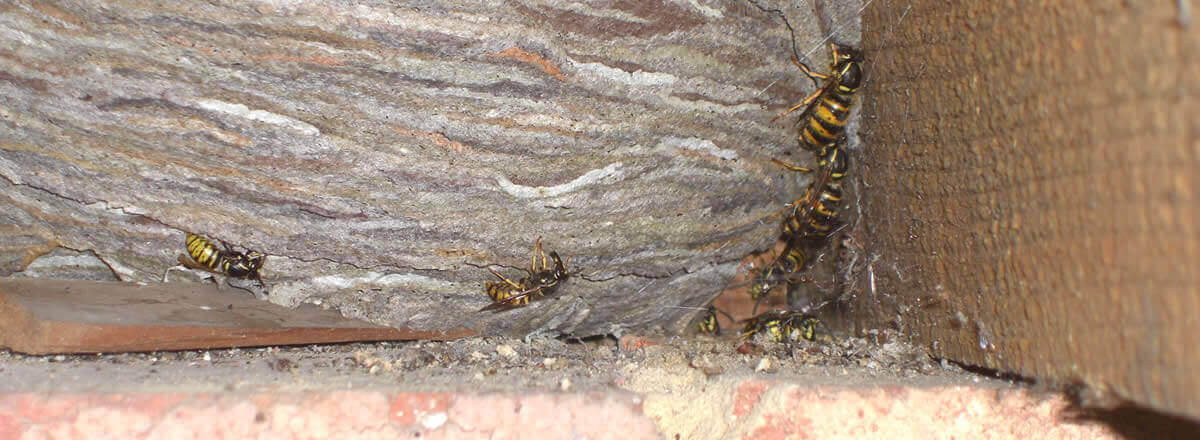Wasp nest removal
Wasp nests can be dangerous to handle. Rely on professional treatments to keep safe from stings
Pest control service
Integrated Pest Management
Termite solutions
Common pest
Specialist services
Hygiene and scenting
Hygiene services
Scenting services
Space & surface treatment services
Industry & residential
My business handles food
My business doesn't handle food
MY Home services
About Rentokil Initial

Call us for a free quote on 400 820 8770 or contact us
Prevention is key if you want to avoid problems with wasps, especially during the summer months when they are most active.
It is always easier to prevent a problem before it happens, rather than to wait for wasps to invade your home or garden. The fear of a wasp sting can be so great that it can prevent some people from going outdoors.
Early treatment of a wasp nest will help to keep you and your family safe from painful stings.
Making changes to your behaviour and how you handle food and drink outdoors can also help to deter this stinging pest.
Check for nests - Check your home and garden in early spring for nests, early on they will be walnut or golf ball in size - early small nests have fewer wasps and are easier to treat quickly. Look for nests in lofts, garages, sheds, cavity walls or under eaves.
Secure bins - Ensure outside bins have tightly fitting lids. Keep bins at a distance from doors and windows so wasps are not attracted to the contents.
Keep windows and doors shut - To prevent wasps entering inside your home.
Keep safe - If you have spotted a nest, make sure you keep children and pets away from the area.
Although high numbers of wasps in your home or garden almost certainly means there is a nest nearby, removing a wasp nest may not always be a possible solution.
If the nest is not on your property, you will have very limited control on what you can do to remove it.
Nests located in confined, hard-to-reach areas (such as cavity walls) will also be more difficult to treat.
Need a professional solution?
For peace of mind and to be completely safe from stings, it is safer to let a professional Rentokil Initial technician treat the nest for you.